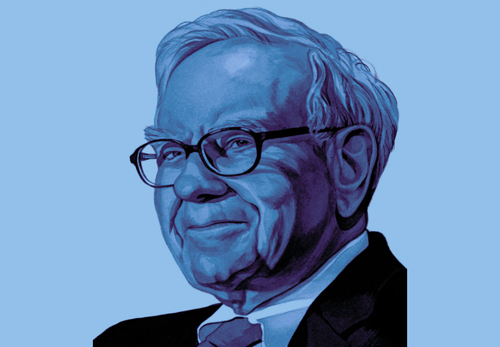
Warren Buffett, the iconic billionaire investor and chairman of Berkshire Hathaway, recently released his latest letter to shareholders.
You probably didn’t hear a lot about it, not least of all because the stock market has been generating plenty of news on its own lately thanks to reaction to the coronavirus.
It’s still very much worth your time to read and absorb Buffett’s undeniable wisdom. For instance, he spends a fair amount of his space in this year’s letter talking about company directors and how to hire them. Now, this is not something investors think much about. But Buffett’s point is worth a deeper look — as is applying that wisdom to your overall investment thinking.
The problem, Buffett explains, is that company directors primarily are motivated by the money they make to sit on boards. Meanwhile, CEOs are motivated to find directors who will not challenge their decisions, especially about their own compensation.
“When seeking directors, CEOs don’t look for pit bulls. It’s the cocker spaniel that gets taken home,” Buffett writes.
That’s a built-in conflict of interest, one that serves the board and the management but not shareholders. Buffett argues that Berkshire and its many units work hard to avoid this conflict trap.
Dancing with the stars
He then goes on to make a key point about expertise and titles. In short, just because you have a given job doesn’t mean you’re good at it.
“I’d like you to know that almost all of the directors I have met over the years have been decent, likable and intelligent. They dressed well, made good neighbors and were fine citizens. I’ve enjoyed their company. Among the group are some men and women that I would not have met except for our mutual board service and who have become close friends,” Buffett wrote.
“Nevertheless, many of these good souls are people whom I would never have chosen to handle money or business matters. It simply was not their game.”
In Buffett’s typically disarming style, he immediately turns the example into self-deprecation.
“They, in turn, would never have asked me for help in removing a tooth, decorating their home or improving their golf swing. Moreover, if I were ever scheduled to appear on ‘Dancing With the Stars,’ I would immediately seek refuge in the Witness Protection Program,” he wrote.
“We are all duds at one thing or another. For most of us, the list is long. The important point to recognize is that if you are Bobby Fischer, you must play only chess for money.”
That final line is a huge and important point about money management, which is my business. Yes, there are people in the world who should be trading stocks for a living.
Buffett is one of them, or at least he was for a long time. In recent years he’s taken to recommending that most investors own the market via index funds rather than pick stocks, and he has advised his own attorneys to do the same with money he leaves behind for his family.
Those very few extraordinary investors should be trying to beat the market. Like chess prodigy Bobby Fischer, they should be only playing chess for money.
Broken clocks
The trouble is that the vast majority of ordinary investors are not the Bobby Fischers of the investment world. They really aren’t. Nor are the celebrated pundits you see on CNBC talking about their latest ideas.
The TV pundits, with extremely few exceptions, get airtime because their particular strategy — arguably their particular bias — is working at that moment. Soon enough, they will be losing money by the boatload and no longer be asked to appear on TV, at least until their approach returns to favor.
Popular investment strategies come and go not because their proponents are right but because those strategies do work on occasion. Like the proverbial broken clock, these pundit-investors are right at least once a day.
Can you afford to hire a superstar manager who’s nearly always right, someone in the stratosphere of investment thinking? If you have $50 million to invest — maybe.
The rest of us mere mortals are far, far better off keeping things simple and letting diversification and risk management keep our money on track. The gains you make using index funds and allowing your cash to compound at a low cost are absolutely enough to help you retire with more.
As Buffett rightly notes, we’ll all duds at something. As far as investing goes that’s nearly all of us — even the 90% of well-paid “pros” who run expensive investment funds and yet fail to beat the indexes year after year.
Be Bobby Fischer, hire Bobby Fischer (if you can), or step back and let the markets drive for you. It’s a simple idea, and as usual simple, repeatable ideas work best.




